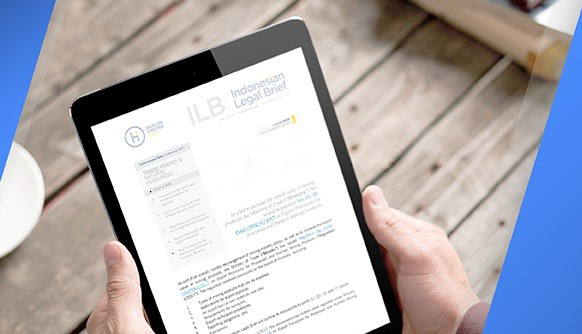
In 2023, the Indonesian Government issued Regulation No. 12 of 2023 (“Regulation 12/2023”) on Business Licensing, Ease of Doing Business and Investment Facilities for Business Actors in the Capital City of Nusantara (Ibu Kota Nusantara – “IKN”), which specifically addresses the issuance of business licenses, ease of doing business and various investment facilities and incentives that are available to business actors that engage in business activities within IKN and certain regions of Kalimantan as a part of the IKN economic superhub (“Partner Regions”).[1]
In order to ensure greater legal certainty regarding the implementation of the various provisions that are set out under the framework of Regulation 12/2023, the Minister of Finance (“Minister”) recently issued Regulation No. 28 of 2024 on Taxation and Customs Facilities in IKN (“Regulation 28/2024”), which has been in force since 16 May 2024.[2]
At its core, Regulation 28/2024 sets out provisions that specifically address the various types of taxation and customs facilities that potential investors who are aiming to engage in business activities within IKN and Partner Regions will be able to enjoy.[3] For reasons of concision, this edition of Indonesian Legal Brief (ILB) has limited its analysis of the new tax incentive provisions that are provided under the framework of Regulation 28/2024 to the following types of taxes:
|
|
Details and general requirements for these new tax incentives are detailed in the table below:
| Tax Type | Maximum Incentive Facility | General Requirements |
| Article-21 PPh | Borne by the government | Article-21 PPh for incomes that are received by certain employees in relation to their work is to be borne by the government as a form of tax incentive facility.[4] The types of employees that are eligible to enjoy this facility encompass permanent and/or non-permanent employees who meet the following criteria:[5]
|
| Corporate PPh | 100% deduction |
|
| Gross income | 250% deduction | Taxpayers who organize and/or employ human resources in relation to educational and/or training activities within IKN for work experience, internship and/or training activity purposes in order to foster and develop certain competency-based human resources will be granted a maximum incentive of a 250% deduction from gross income that will comprise a 100% deduction in the total cost of the relevant work experience, internships and/or training activities, as well as an additional 150% deduction for total incurred costs.[15] |
| 350% deduction | Domestic corporate taxpayers who are domiciled in and/or who engage in certain research and development activities within the IKN area will be granted an additional gross income deduction that amounts to a maximum of 350%, consisting of a 100% gross income deduction from the total costs of research and development activities, and an additional deduction of up to a maximum of 250% of any accumulated costs that are incurred.[16] | |
| 200% deduction | Domestic taxpayers who donate to and/or who bear the costs associated with the construction of public facilities, social facilities and/or other non-profit facilities within the IKN area will be granted a maximum 200% gross income deduction, consisting of a 100% gross income deduction from the total donation and/or incurred costs and an additional 200% deduction from the donation and/or incurred costs.[17] | |
| PPh on transfers of rights to land and/or buildings | 100% deduction | Taxpayers who transfer rights to land and/or buildings within the IKN area will be granted a 100% PPh deduction, including transfers of rights through binding sale-and-purchase agreements for land and/or buildings and their adjustments.[18] This facility will be granted until the year 2035.[19] |
| Value-added tax | Will not be collected | Value-added tax will not be collected for any of the following activities that are undertaken within the IKN area:[20]
|
| Sales tax on luxury goods | Exempted | Deliveries of luxury residential properties to private individuals, entities and/or ministries/institutions that engage in business activities or duties within IKN and/or that are domiciled in IKN.[23] |
Key Takeaways
In order to utilize the various tax incentives that are outlined above, all taxpayers who meet the requirements should ensure that the provided amounts and terms of incentives are in line with their business activities and characteristics, and must also fulfill the requirements and procedures for the utilization of such incentives. Furthermore, upon securing and utilizing the provided incentives granted under Regulation 28/2024, taxpayers must subsequently comply with provisions on the various obligations and prohibitions that apply to said incentives.



National Economy
Regional Economy
National Economy
Regional Economy